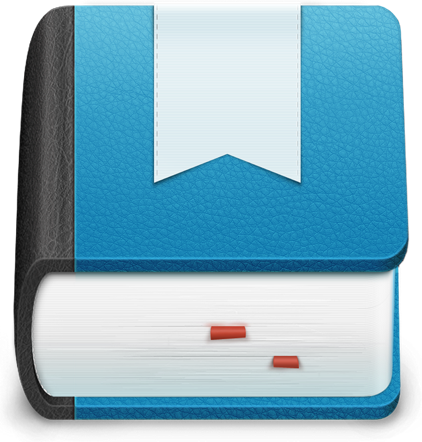One of the first things that you want to do when you’re shopping for a new home is to talk to your lender. It won’t cost you anything and they’re going to help you understand your purchasing power, what your monthly payments might be, and the paperwork that’s going to be involved in the application, then they’re probably going to have you submit that loan application so that they can get you an actual pre approval letter so that you can be best positioned when you want to make an offer on a house. And that is one of the first things that you want to do.
Fastmail adds new rules and other settings screens in beta
Fastmail is making a huge improvement to their email service with more advanced rules. I’m snappy to see this feature being added as it was one thing I’ve asked for on multiple occasions.
A manifesto for small teams doing important work —Seth Godin
Seth Godin has more great things to share about working with a team and getting stuff done. Definitely worth a read.
Breaking Free From The Resistance

I am reading a book called The War of Art by Stephen Pressfield. This book has been recommended to me so many times in other blog posts, podcasts, and other discussions that I finally caved and decided to dive into it. I just started to read it. I’m literally only about 20 very easy pages in.
The topic of Pressfield’s book is the Resistance. The Resistance is the thing that keeps you from accomplishing your work. It is the thing that stops you from even getting started. It pops up in various forms and not-so-subtly it takes over.
It is that force within us that when a great idea comes to us it says “No you cannot do that. You don’t have enough experience.” Or maybe for you it is the times when you have to write that big paper, finish that project, or start calling people so you can actually make a sale and instead it reminds you that the garage needs to be rearranged.
It chooses the garage. When we let It choose things for us we always lose. We lose because then the next time we remember our dream, that project, paper, or call we are reminded that last time we failed.
This is like a snowball effect. The momentum builds and suddenly it feels like there is nothing we can do to stop it. It is an avalanche that is racing towards us.
How To Fight The Resistance
The reality though is that we can stop this. We don’t need to have a massive plan for conquering the Resistance. In fact a big plan works against us.
You need a simple plan. The plan is this…just start.
That sounds too simple right? How can this giant avalanche of momentum be thwarted by simply starting? Because small actions, accumulated over a period of time, produce huge results.
The simple act of starting is a powerful action that I too often forget to take. I like to think of all the steps that need to be taken. I like to plan and organize. I like to be thought of as a great thinker. The problem is that thinking alone will not get me (or you) anywhere. Thinking must be married to action.
Pressfield writes in the opening of his book about his daily routine for writing. He walks the reader through his day and details how he takes away the choice of whether to write or not. For him it doesn’t matter. For those four hours he is producing. In his own words he says
“All that matters is that I’ve put my time in and hit it with all I’ve got. All that counts is that, for this day, for this session, I have overcome the Resistance.”
– Steven Pressfield in The War of Art
What can you do right now, today, to take action to overcome the Resistance?
Now go do it.
Why I Should Have Used Day One Right Away

A couple of years ago I started hearing about this app called Day One. At the time everyone talked about how amazing it was, how beautiful it was, and how you could do so many things with it. I bought it immediately.
The app truly was beautiful but for one reason I did not use it. The app is a kind of journal. I did not journal. So I could not see how it fit into my life.
Then the makers of Day One came out with auniversal app for the iPhone and iPad. I again bought it immediately. I also thought that since I always had one of these devices with me I would journal more. That was not the case.
It wasn’t until I made a choice in my life that I wanted to start capturing more, writing more, and remembering more that this app truly started to make a difference for me. Once I shifted my thinking from “this app will change my life” to “this app can be a tool to help me accomplish something I am intentionally setting out to achieve” I found the true power, simplicity, and usefulness of it.
Day One has so many uses that I could go into: tags for journal entries, ability to take pictures, a beautiful timeline of your entries, an amazing way to search, the ability to add the weather of your current location, reminders to tell you to post, iCloud and DropBox syncing, location tagging, a quick entry menubar item so you can quickly jot a note down, and so much more.
How I Use Day One
What I want to highlight is it’s ability to just be my external brain wherever I am. It is a tool that I use to capture life’s little moments right on the spot. Whether I am at my computer, out on a walk and I have my phone, or sitting in a coffee shop reading on my iPad I have the ability to quickly jot down what I want to remember.
I am a person who likes to remember when I had some thought or when some event happened in my life. So having Day One automatically put my entry into a dated timeline is super useful. I can refer back to a date and find out what I was doing or what I was thinking or working through. I no longer have to remember everything.
The tagging system lets me quickly say that an entry is about some topic. I like to put quotes that I hear into Day One. Now I can go into Day One and search for entries with the tag of “Quote” and right there I have all the quotes I have entered into the app.
I also like to use Day One as a prayer journal, as a place where I can write about frustrating situations that I don’t want to be public, as a place to post about items that I might want to tweet or post about later, as a medical journal, as a journal for keeping track of times when my dog gets sick, and so much more.
Advanced Use of Day One
For the more technically inclined advanced users out there there is even a software tool Brett Terpstra has written called Slogger. It can take all kinds of Internet and social media items and automatically log them into your Day One app. So imaging getting all of your tweets automatically logged into this awesome journal where you are capturing everything that is going on in your life.
Why Not Just Use Evernote
I love Evernote! I use it every day for so many purposes and I wouldn’t be a very happy camper to not have access to this tool. However, Day One to me just seems more personal. It is literally like a log, book, or journal that I can look back on and know without a doubt that all the stuff in there is mine.
I love how I can see things in a timeline and go reference things that way. I like how my thoughts, quotes, prayer journals aren’t intermingled with all of the other areas of my digital life. Some note or really intimate life journal entry won’t get accidentally shared by me making a silly mistake like putting that note into the wrong shared notebook.
Maybe it’s just me but I like to have a separate app for this kind of use.
Go Get It
The cost of Day One is currently $9.99 in the Mac App Store and $4.99 in the iTunes App Store.
Check out the Day One website for even more info, a full feature set, a guide, how others are using it, and awesome screenshots showing the app in use.
Other Useful Reviews, Uses, or Podcasts Related to Day One
- Shawn Blanc’s review
- Federico Viticci review
- The Verge’s review
- Katie Floyd uses Day One as a professional journal
- Mac Power Users podcast discusses Day One in episodes #103, #117, and #118.

